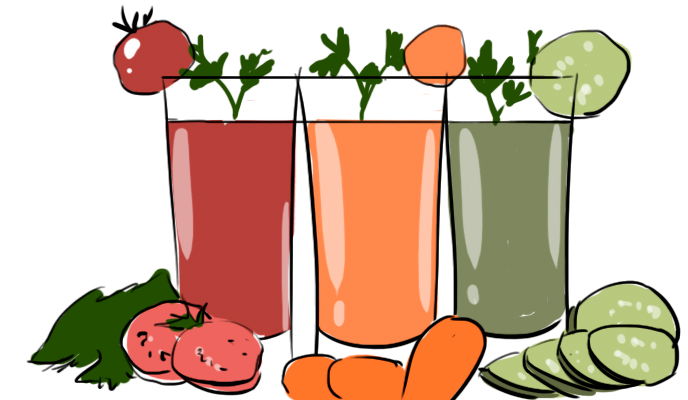Human food contains essential nutrients: proteins, fats, carbohydrates, vitamins, minerals, macronutrients. As all our life consists of the exchange of substances in nature, for a normal existence adult should eat three times a day, filling the "stock" of nutrients.
In the body of a living person there are continuous oxidation processes (compounds with oxygen) of various nutrients. The oxidation reaction is accompanied by the formation and release of heat needed to maintain vital processes of the body. The heat energy provides the activity of the muscular system. Therefore, the harder the physical work, the more food is required by the body.

Proteins support the basic manifestations of life: metabolism, muscle contraction, nerve irritability, ability to growth, reproduction, thinking. Proteins are contained in all tissues and body fluids, as their core portion. The structure includes a variety of proteins, amino acids that determine the biological significance of a particular protein. Nonessential amino acids are formed in the human body. Essential amino acids in the human body come from food only. Therefore, for physiologically fool life, the presence of all the essential amino acids is required. The lack of even one essential amino acid in food, leads to lower biological value of proteins and may cause protein deficiency despite adequate amount of protein in the diet. The main suppliers of essential amino acids are: meat, milk, fish, eggs, cheese.
Fats exceed energy of all the other substances that are involved in the reconstruction process, being a structural part of the cell and its membrane systems, they serve as solvents of vitamins A, E, D, and promote their absorption. Also, fats contribute to the development of the immune system and help the body to retain heat. Lack of fat leads to disruption of the central nervous system, skin changes, kidneys, eyes. In sufficient quantities fats are contained in the brain, heart, eggs, liver, butter, cheese, meat, lard, poultry, fish, milk. Particularly valuable are vegetable fats which do not contain cholesterol.
Carbohydrates are the main source of energy. Carbohydrates should constitute 50-70% of calories in daily diet. The need in carbohydrates depends on the energy inputs of the body. The daily need of carbohydrates for an adult, engaged in mental or light physical work, is 300-500 g / day. The need for carbohydrates of people engaged in heavy physical labor is much higher. Dietary energy consumption of obese people can be reduced by the amount of carbohydrate without compromising health. The following products are rich in carbohydrates: bread, cereals, pasta, potatoes, sugar (pure carbohydrate). Excess of carbohydrates in the body violates the right balance of essential parts of food, thus violating the metabolism.
Vitamins are not suppliers of energy. However, they are needed in small amounts to maintain normal functioning of the body, regulating, directing and accelerating the processes of metabolism. The vast majority of vitamins are not produced in the body, and comes from the outside with food. Actions of vitamins in the body are interrelated as the lack of a of vitamins distorts the exchange of other substances. All vitamins are divided into two groups: water-soluble vitamins and fat soluble vitamins.
Minerals are part of cells and tissues, which participate in a variety of metabolic processes. Macronutrients are required for the body in relatively large quantities: calcium, potassium, magnesium, phosphorus, chlorine, sodium salt. Trace elements are needed in very small quantities: iron, zinc, manganese, chromium, iodine, fluorine. Iodine is found in seafood, zinc-rich cereals, legumes, liver; copper and cobalt contained in beef liver, kidney, egg yolk, honey. The berries and fruits are high in potassium, iron, copper and phosphorus.
It is very important to maintain good health and keep to a good and healthy diet. If you need to write an essay on any topic and do not know what to start with, you are welcome to make an order on our site.